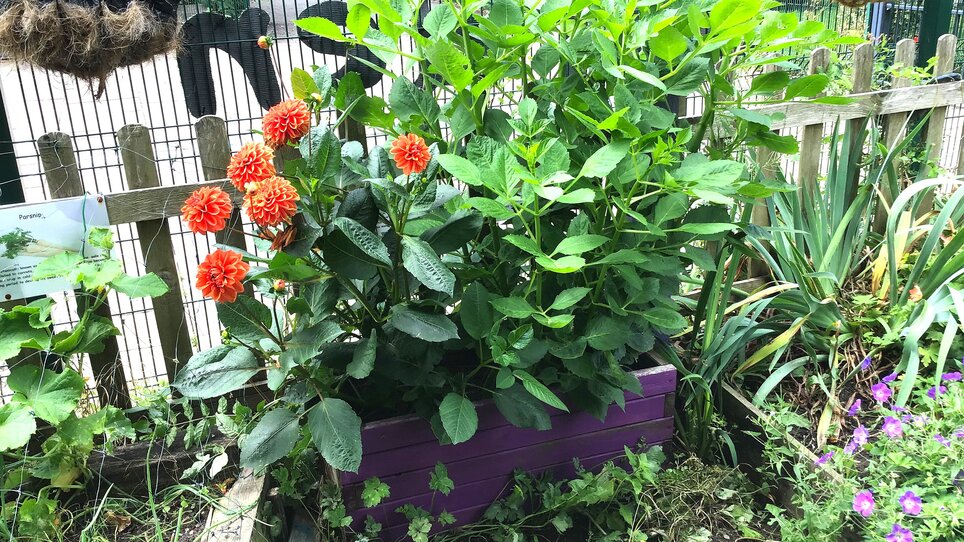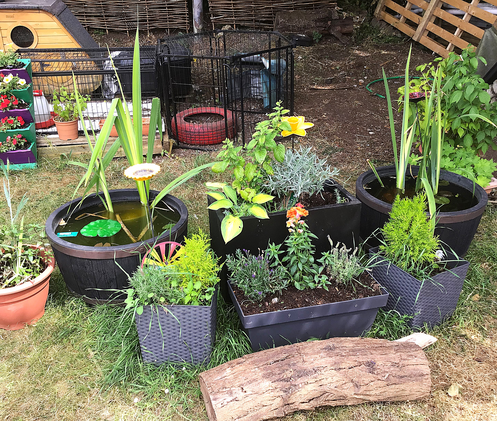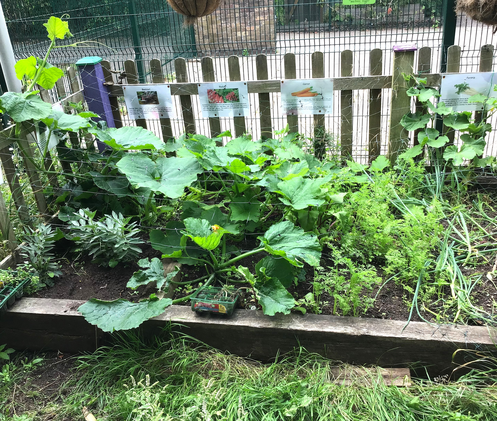Sybil Elgar School earns RHS Level 3 Gardening Award
Published on 11 March 2025

Sybil Elgar School has been awarded the RHS Level 3 Gardening Award. Our horticulture department is dedicated to embracing planet-friendly gardening projects by growing a variety of plants and maintaining a healthy garden. Teacher Svetoslava Gocheva, her students and her team are working incredibly hard on maintaining the garden. We are proud to share their journey of creating a bustling garden for wildlife and fresh produce right in the heart of Ealing.


Below are descriptions of how the horticulture team has met the criteria for this prestigious award.
We grow and care for a variety of plants
- Our students grow a diverse range of plants, including vegetables (beans, peas, radishes, carrots), salads, herbs, and fruit trees (apple and pear).
- As a Bumblebee-Friendly School we choose plants with a lot of nectar and pollen, like crocus, alliums, and bluebells to support bees in the spring.
- Indoor gardening in classrooms thrive with air-purifying plants and microgreens like cress.
Keeping our plants healthy
- We make our own compost by harvesting old plants and leaf mould to enrich the soil.
- Students regularly pull out weeds at the root, check for pests and make sure plants get just the right amount of water to sustain healthy growth.
- New plants are inspected carefully, before planting and we add nutrients as needed to help them thrive.
Planet-friendly gardening
- We promote sustainability by reducing, reusing, and recycling gardening materials.
- Paper plant pots made from newspaper replace plastic pots.
- We reduce tap water by collecting rainwater instead.
- Students often choose drought-resistant plants.

Next steps
Our next step is to make our garden even better for wildlife and use gardening more in our lessons. Gardening helps students learn in many subjects, like science, literacy, maths, geography, art, and PSHE. They will learn about plant life cycles, research how to grow different plants, measure seed depth and spacing, make signs for the garden, and cook with food we grow. Nature will also give ideas for poetry and art, helping students be creative. We want gardening to be a fun and useful way to learn and enjoy nature together.

